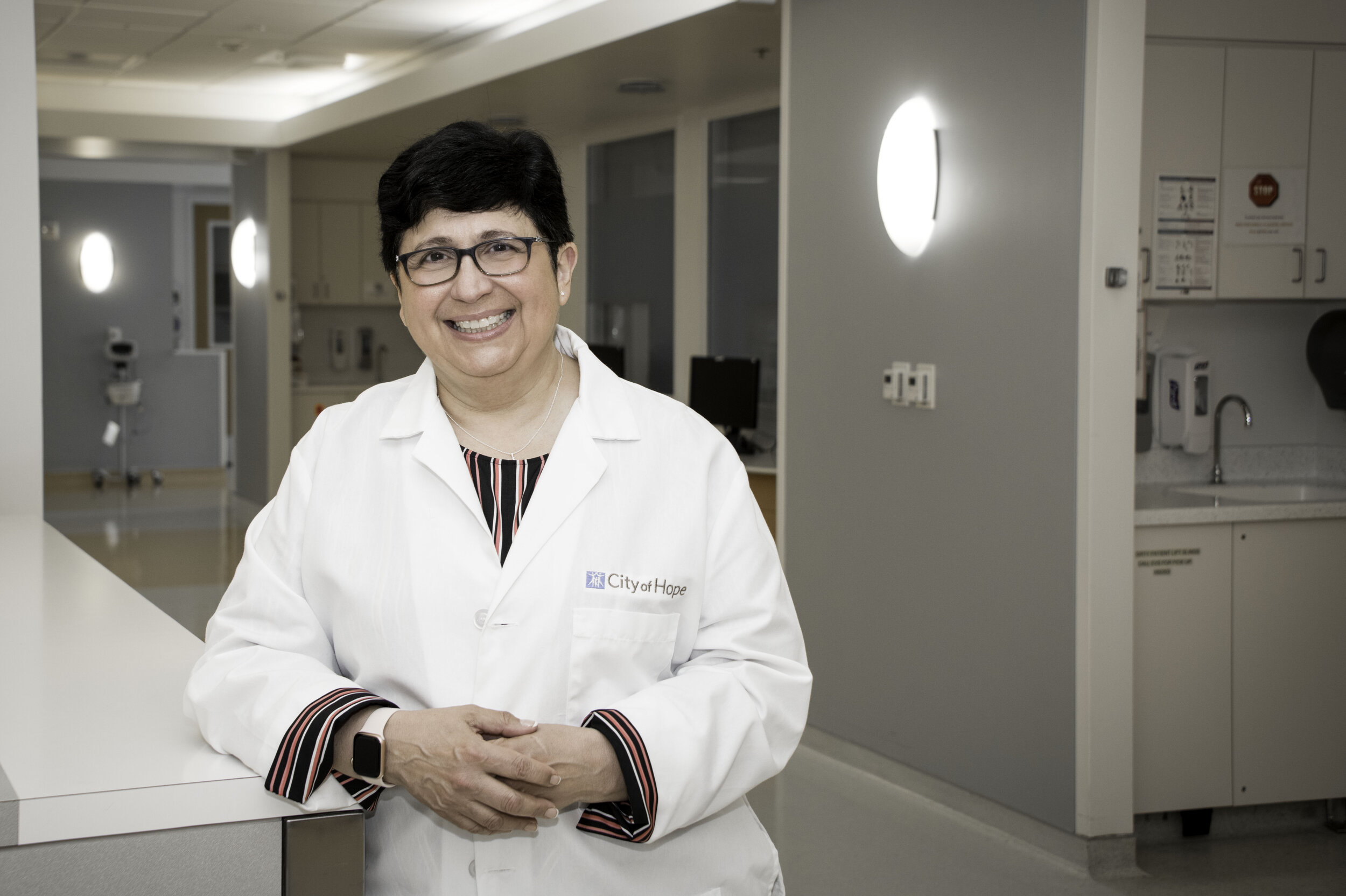Dr. Rodriguez Discusses a Smarter Approach Towards Fighting Cancer
Dr. Lorna Rodriguez from City of Hope has her eyes on completing one goal: finding a cure for gynecologic-related cancer. She will continue her mission at the renowned cancer research and treatment center, City of Hope in California.
AT AN EARLY AGE, before she could be left on her own, City of Hope’s researcher/physician Dr. Lorna Rodriguez wandered the hallways of the hospitals of San Juan, Puerto Rico, while doctors attended to her brother, who was born with several birth defects.
Young Lorna took it all in, picking up on some of the gentle nuances of healthcare, such as the respect her parents showed to doctors and the doctor’s efforts to reassure her parents that things would turn out well. Young Lorna realized that taking care of one patient meant taking care of a family. Still, she was bored and her wandering frequently brought her to the emergency room, because that’s where the action was.
Lorna marveled at the efficiency, the kindness, the professional calm of the doctors and the sophistication of the science that was dramatized before her eyes. Someday, she thought, it would certainly be something to be part of that scene. The doctors weren’t just saving lives with hard science; they were elevating humanity with grace, compassion and dignity. All of it appealed to her – even the parts where most of us would close our eyes.
With a resolve to maintain her humanistic ideals, Dr. Rodriguez hit the books and she hit them hard. She earned a medical degree, then decided to specialize in obstetrics, gynecology and oncology. She narrowed that down to gynecological tract cancers, such as cancers of the uterus, cervix or ovaries. But that wasn’t enough. Drawn to research, Dr. Rodriguez went on to earn a PhD in biochemistry before finding the perfect match to her talents: An appointment at the City of Hope National Medical Center, based in Duarte, California, with a network of clinics throughout the southern end of the state.
Rodriquez praises City of Hope’s staff, its facilities and its mission. She also says the focus of cancer treatment is changing from a carpet-bombing approach – throwing everything you’ve got at the cancer in a manner that has historically been devastating to the patient – to a smart bombing approach. Current treatments, says Rodriguez, involve what is called sequencing. Doctors examine the actual DNA of the cancer cells during a tissue biopsy. In this manner, they can determine what happened with the DNA that made the cells grow without control. After this, they can choose drug treatments customized to a patient’s illness.
Meanwhile, she is working for a world-renowned cancer research and treatment center that offers cutting edge technology and has “the best researchers and the best doctors in the world,” she says. City of Hope has more than 500 trial studies underway at any given point and still treats patients with respect, care and compassion, Rodriguez says.
She also encourages Latinos to get into the field of healthcare just to add their cultural perspective on research and patient care. In addition, the more Latino doctors, the better, she says, simply because Latino patients may feel more comfortable under the care of someone with a common culture. The best way to encourage Latino men and women to join the ranks of medical research is by setting an example, she said. One Latino doctor can influence many others to follow suit. This, in turn, means help for patients and their families, she says.
In the meantime, keeping healthy eating habits and exercising frequently may help keeping cancer away.
And what is her goal? Research, she says. Outsmart cancer. That could happen one of these days.

